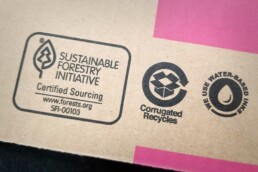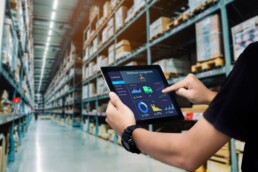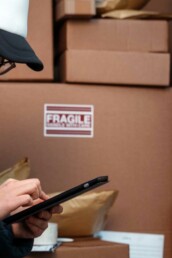5 Strategies for Eco-friendly Fulfillment
As the e-commerce industry continues to expand, so have consumer concerns around environmental impact. E-commerce waste is becoming a serious problem. In 2018, the EPA estimated that packaging accounts for about 30% of all household waste. Increased social awareness has magnified the importance of minimizing our carbon footprint. Today, nearly 90% of Gen X consumers said they would be willing to spend an extra 10% or more for sustainable products or services, compared to just over 34% two years ago. Brands that reduce their carbon footprint have a unique advantage in the marketplace. You can build strategies for eco-friendly fulfillment even if you don’t sell “eco-friendly” products. Every decision made toward a more sustainable future benefits us all.
Sustainable Packaging

Sustainable packaging is packaging that produces the least amount of pollution regarding manufacturing, production, and disposal. Making a switch to more eco-friendly packaging instantly reduces environmental impact. The myriad of biodegradable, recycled, and compostable packaging options can be dizzying to select the best choice for your brand. Download our “Sustainable Packaging Guide” for more detailed insight on determining what is suitable for your company.
There are three main types of eco-friendly fulfillment packaging.
- Compostable packaging – made from renewable plant-based materials and or biopolymers and must break down within 90-180 days in commercial composting conditions.
- Reusable packaging – can be used multiple times and intertwines with sustainable packaging design.
- Recycled packaging – typically sourced from plastics that have been reprocessed at a recycling facility and given a second life.
Optimized Transportation

Another area to boost eco-friendly fulfillment is optimizing transportation, as it contributes significantly to growing greenhouse gas emissions. Ways to streamline transportation include reducing trips, ensuring a high fill rate on shipments, and utilizing local distribution centers. A 3PL partner can provide strategic transportation solutions to build a sustainable e-commerce business. They can boost the fill rate per transport vehicle, which reduces overall gasoline consumption and CO2 emissions. Furthermore, a 3PL can eliminate stages of the transportation journey by leveraging multi-site distributions and optimized route planning.
Streamlined Inventory Management

While streamlining inventory management might not be an obvious strategy for eco-friendly fulfillment, errors can be costly in time and resources and create inefficiencies. Every improperly labeled, categorized, or shipped product must be returned, restocked, or discarded. Therefore, ensuring your fulfillment team has a streamlined inventory management system will reduce errors, time inefficiencies, and returns or exchanges. Consequently, a fulfillment team that implements the following inventory management protocols will be more effective and, as a result, more eco-friendly.
- Automated processes
- Single SKU (QR coding/barcoding etc.)
- Accurate and real-time reporting
- Integrated technology
- Open communication within supply chain partners
Developing an inventory management process that incorporates as much automation and digitization as possible helps reduce human error, but it isn’t 100% necessary. Businesses managing inventory manually can still be eco-friendly if they create processes that are mindful of reducing waste and include checks and balances to ensure accuracy.
Domestic or Localized Supply Chain

A hyper-local supply chain is a way to create a more eco-friendly fulfillment strategy. If the raw goods you sell can be sourced from suppliers closer to your customer base, it reduces your carbon footprint. It takes a lot of energy and money to ship goods from overseas. Furthermore, issues with supply chain delays and gridlocks are mitigated more easily with domestic vendors.
Eco-friendly Fulfillment Partner

Certainly, enhancing your company’s eco-friendly score is crucial. Therefore, opting for an environmentally-minded fulfillment partner becomes a significant decision. To achieve this, consider partnering with a 3PL that has established processes promoting sustainability. Falcon Fulfillment, in particular, provides optimized transportation, various sustainable packaging options, multi-site distribution, and automated inventory management. This strategic move can contribute significantly to your overall eco-friendly initiatives.
Beginner’s Guide to Third-Party Logistics (3PL)
The world of e-commerce is always changing, therefore understanding the roll of Third-Party Logistics is integral to keeping up. In light of this our beginner’s guide to third-party logistics (3PL) will delve into the essential aspects, offering insights into fulfillment services, warehousing, and much more.
Read More…
Consumers are willing to pay a little bit more to know that their purchase is going to a company committed to sustainability. Implementing strategies for eco-friendly fulfillment is a process. Start by choosing a few ways to create a sustainable business, like swapping traditional packaging materials for sustainable options. As your business grows, your sustainability strategy can as well.





